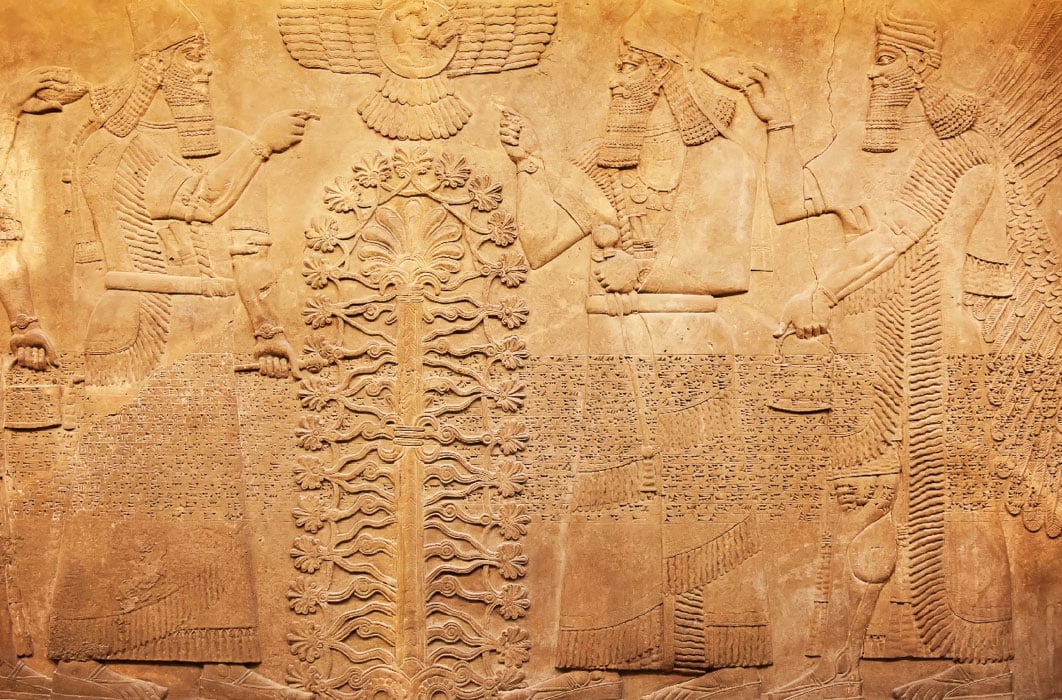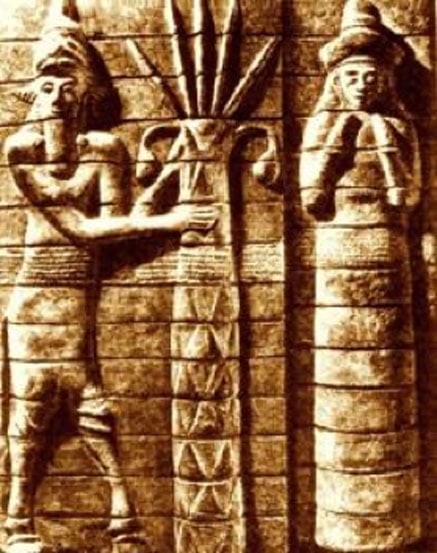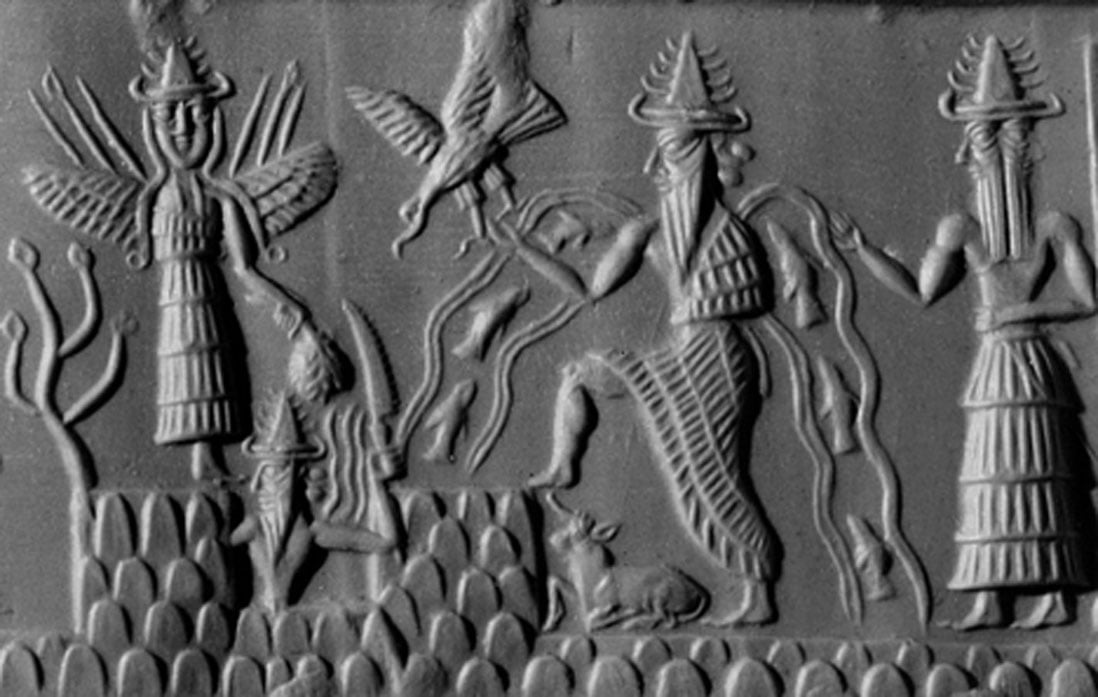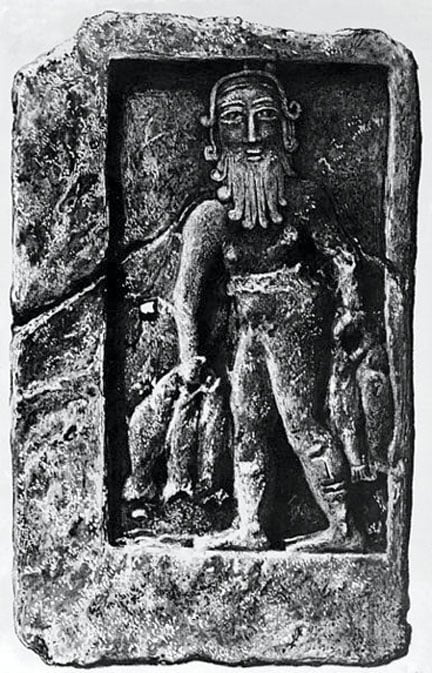
Eden Revisited: The Sumerian Version
Sumer, in Mesopotamia, was called ‘the land of civilized kings’. It reached its peak around 6,500 years ago when it had the distinction of being a very advanced civilization with a sophisticated written language, magnificent architecture for the time, complex mathematics, and amazing astronomy. Hundreds of gods comprised its religious system. Sumerians believed that although humans and the gods once shared the earth together, they didn't share a co-equal existence. Humans, they believed, were designed for the express purpose of serving the gods. Their chief god, Anu, commissioned his son, Enki (Ea), and his daughter Ninki (Enki's half-sister) to create humans by sacrificing a god, mixing his body and blood with clay, and forming the first human being made in the likeness of the gods.

Enlil and Ninlil (Public Domain)
The Creation of Man: Adapa
According to Sumerian mythology, human-like gods called Anunna had initially come to mine resources that were needed on their home planet. Now, with the creation of a human labor force, their duties were changed. They ruled over what was, for all practical purposes, a human slave race. Their base of operations was Mesopotamia, the land between the Tigris and Euphrates river. In the Epic of Gilgamesh, the world's first epic poem, it was called Eden.
At first, according to the texts, humans were unable to reproduce on their own. This proved inconvenient. So, Enki and Ninki found a way to modify the new species. The result was a man called Adapa, a fully functional and independent human being. Enki had given Adapa great wisdom and the ability to understand the concept of eternal life. But Adapa's curse was that he could never attain that which he was able to conceive.

Detail of The Adda Seal. Goddess Inanna, god Utu, god Enki and chief minister Usimu. (Public Domain)
Were it not for the Amarna texts, discovered all the way over in Egypt in the archives of the Egyptian king Amenophis, we might never know about Adapa. But in 1912 his story was verified and confirmed by a unique discovery in the Library of Ashurbanipal. Five partial fragments, since translated, were revealed that told part of the story, called Adapa and the South Wind.
According to the story, Adapa had risen to the position of priest or sage. One day, while fishing in the Persian Gulf, the sea became rough and his boat capsized. Adapa became angry and: "broke the wings of the south wind." He prevented it from blowing for seven days and nights. This, of course, caught the attention of the god Anu, who wanted to punish Adapa for the sin of hubris. But Enki came to Adapa's aid. He instructed him to journey to the abode of the goddess Tammuz, who, along with Gishzida, stood guard at the gates of heaven. While there, he was told not to eat or drink anything because heavenly food would kill him.





